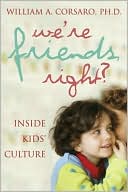Category Books
- Fiction Books & Literature
- Graphic Novels
- Horror
- Mystery & Crime
- Poetry
- Romance Books
- Science Fiction & Fantasy
- Thrillers
- Westerns
- Ages 0-2
- Ages 3-5
- Ages 6-8
- Ages 9-12
- Teens
- Children's Books
- African Americans
- Antiques & Collectibles
- Art, Architecture & Photography
- Bibles & Bible Studies
- Biography
- Business Books
- Christianity
- Computer Books & Technology Books
- Cookbooks, Food & Wine
- Crafts & Hobbies Books
- Education & Teaching
- Engineering
- Entertainment
- Foreign Languages
- Game Books
- Gay & Lesbian
- Health Books, Diet & Fitness Books
- History
- Home & Garden
- Humor Books
- Judaism & Judaica
- Law
- Medical Books
- New Age & Spirituality
- Nonfiction
- Parenting & Family
- Pets
- Philosophy
- Political Books & Current Events Books
- Psychology & Psychotherapy
- Reference
- Religion Books
- Science & Nature
- Self Improvement
- Sex & Relationships
- Social Sciences
- Sports & Adventure
- Study Guides & Test Prep
- Travel
- True Crime
- Weddings
- Women's Studies
We're Friends, Right?: Inside Kids' Culture »

Authors: Ph.D. William A. Corsaro
ISBN-13: 9780309087292, ISBN-10: 0309087295
Format: Paperback
Publisher: National Academies Press
Date Published: December 2003
Edition: (Non-applicable)
Author Biography: Ph.D. William A. Corsaro
Book Synopsis
For three decades, Corsaro (sociology, Indiana U., Bloomington) has conducted intensive ethnographic fieldwork on the culture of children. In this comparative analysis, he explores private middle-class preschools and government-supported Head Start programs for economically disadvantaged children in the U.S., and public preschools in Italy. He finds that children from all three groups want to gain control over their lives and share that sense of control with their peers, but they differ in their interpersonal styles of interaction, formation and maintenance of friendships, and strategies for engaging in and settling conflicts. Annotation ©2004 Book News, Inc., Portland, OR
Library Journal
The world of the child is both a preparation for adulthood and a total society of its own, and these books map it from quite different perspectives. Sociologist Corsaro (The Sociology of Childhood) provides a comparative description of preschool education in the United States and Italy, using participant-observation methodology in economically diverse settings. His research, which began in the 1970s (Berkeley, CA) and concluded in 2001 (Modena, Italy), focuses on children's friendship processes. Topics include conflict, types of play, adult role rehearsal, and sharing and social participation. Interestingly, he concludes that the Italian preschool system, which is more fully integrated into the larger society, generated a richer and more complex peer culture. Ways to improve the U.S. version are also discussed. The Unwritten Rules of Friendship is a more direct advisory manual for parents concerned about their children "fitting in" with peers. Elman (director, Summit Ctr. for Learning, NJ) and Kennedy-Moore (Expressing Emotion: Myths, Realities, and Therapeutic Strategies) rely on research and clinical experience to formulate nine prototypes of children with friendship problems. These range from passive (e.g., "sensitive soul") to more aggressive (e.g., "intimidating" children, "short-fused" children, and born leaders) personalities. Chapters provide checklists for evaluation, social rules such children need to know, learning activities, and case studies. Corsaro's book contains unique and valuable policy insights into early education issues, though the research covers an unusually lengthy time span; recommended for academic and specialized early childhood education collections. Colorfully written and practical, Unwritten Rules offers many tips for anxious parents. Whereas similar books limit their perspective to the bully/victim paradigm, this one covers more diverse personality problems in a somewhat cursory but productive way. Recommended for public library parenting collections.-Antoinette Brinkman, Evansville, IN Copyright 2003 Reed Business Information.
Table of Contents
| Introduction: The Importance and Autonomy of Kids' Culture | 1 | |
| 1 | "Yeah You're Big Bill": Entering Kids' Culture | 7 |
| 2 | "We're Friends, Right?": Sharing and Social Participation in Kids' Culture | 36 |
| 3 | "You Wanna Know What Happened Because You're My Best Friend": Making and Being Friends in Kids' Culture | 66 |
| 4 | "You Can't Talk if You're Dead": Fantasy and Pretend Play | 90 |
| 5 | "When I Grow Up and You Grow Up, We'll Be the Bosses": Role-Play in Kids' Culture | 111 |
| 6 | "Arriva la Banca": Kids' Secondary Adjustments to Adult Rules | 138 |
| 7 | "You Can't Come to My Birthday Party": Conflict in Kids' Culture | 161 |
| 8 | "Appreciating Childhood": Suggestions for Supporting and Sharing in Kids' Culture | 195 |
| Notes | 219 | |
| Further Reading | 235 | |
| Index | 237 |
Subjects
 Social & Political Aspects of Education
Social & Political Aspects of Education  Students & Student Life
Students & Student LifeNonfiction
 Psychology
Psychology  Psychology - Theory, History & Research
Psychology - Theory, History & ResearchNonfiction
 Social Sciences
Social Sciences  General & Miscellaneous
General & MiscellaneousNonfiction
 All Nonfiction
All Nonfiction  Education - Social & Political Aspects
Education - Social & Political AspectsParenting & Family
 Family - Assorted Topics
Family - Assorted Topics  Child Rearing & Development
Child Rearing & DevelopmentPsychology & Psychotherapy
 Psychology - Theory, History & Research
Psychology - Theory, History & Research  Child & Infant Psychology & Psychiatry
Child & Infant Psychology & PsychiatryPsychology & Psychotherapy
 Psychology - Theory, History & Research
Psychology - Theory, History & Research  Interpersonal Relations - Psychology
Interpersonal Relations - PsychologyPsychology & Psychotherapy
 Psychology - Theory, History & Research
Psychology - Theory, History & Research  Social Psychology
Social PsychologyScience & Nature
 Social Sciences
Social Sciences  General & Miscellaneous
General & MiscellaneousSelf Improvement
 Relationships
Relationships  Relationships - Interpersonal
Relationships - InterpersonalSelf Improvement
 See All
See All  Relationships
RelationshipsMedical Books
 Psychology & Psychotherapy
Psychology & Psychotherapy  Psychology - Theory, History & Research
Psychology - Theory, History & Research
